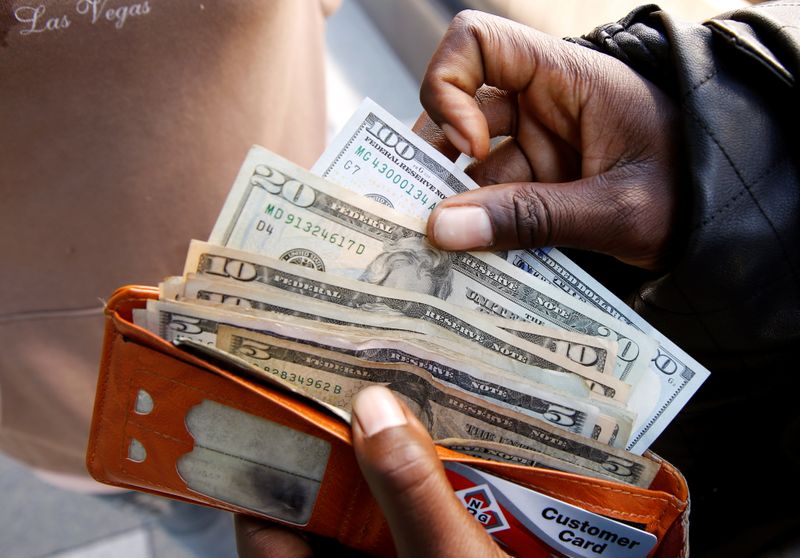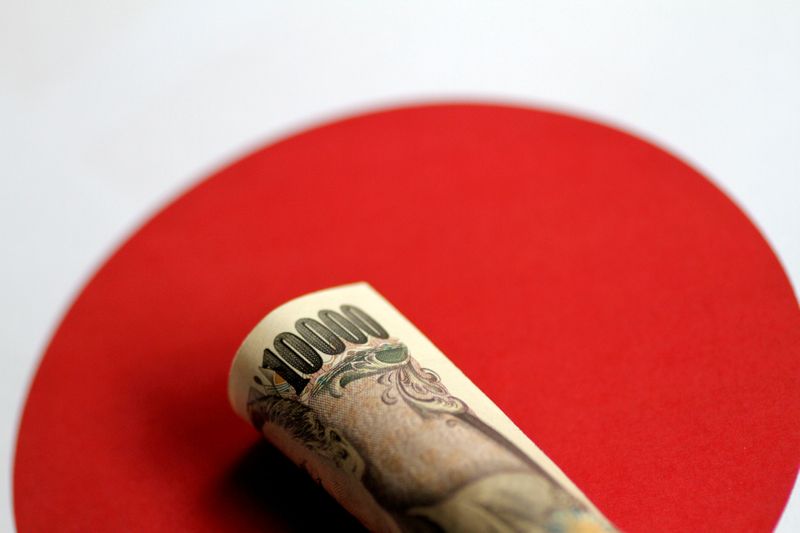By Elizabeth Howcroft
LONDON (Reuters) - The dollar slipped on Friday, as investors' enthusiasm about a possible COVID-19 vaccine was tempered by the second wave of the virus in the United States and Europe and the world's top central bankers remained cautious about an economic recovery.
Global markets surged on Monday after Pfizer Inc (N:PFE) said its experimental vaccine was more than 90% effective in trails. The news saw the dollar rise as traders quit their long-yen positions.
But currency market traders became more risk-averse on Thursday and Friday, after the heads of the Federal Reserve and the European Central Bank (ECB) stressed that the economic outlook remains uncertain.
The prospect of a vaccine is a source of relief but the euro zone will still suffer as a result of new lockdown measures, two ECB policymakers also said.
Jeremy Stretch, an FX analyst at CIBC, said that the market was caught between hopes for the vaccine in the future and the reality of the current COVID-19 numbers.
"It was the case that the negative news flow in terms of the number of COVID cases was causing a little bit of a 'risk-off' dynamic, but it seems now as if the market still wants to try and end the week on a slightly more risk-orientated bias," he said.
Stretch said he was waiting to hear about progress in the vaccine being developed by AstraZeneca (L:AZN) and the University of Oxford - another advanced candidate in the vaccine race.
The dollar slipped in the European session, down around 0.1% on the day at 1224 GMT at 92.882 versus a basket of currencies (=USD).
The safe-haven yen, which dropped around 2% versus the dollar on Monday, continued to claw back some of these losses, up around 0.2% on the day at 104.88
Despite the pullback, the yen was still on track for its worst week since June.
But the Australian dollar - a liquid proxy for risk - picked up. It was up 0.3% on the day at 0.7251 versus the dollar at 1227 GMT
"The prospect of the Fed staying super-easy through the winter and beyond, while vaccine optimism, builds is dollar bearish," Kit Juckes, an FX strategist at Societe Generale (OTC:SCGLY), wrote in a note.
"The big winners in the longer-run are the higher-beta, growth and trade-sensitive currencies," he said.
The New Zealand dollar was down 0.2% versus the dollar at 0.6827
The euro was slightly up on the day at $1.18155 at 0824 GMT.
European shares have dropped from their eight-month highs as European countries' lockdown measures to limit the spread of the virus challenge the narrative of a global economic recovery.
Germany's health minister said on Friday that it was too early to say how long the latest lockdown would last, while the French prime minister said France's measures would not be eased for at least two weeks.
Versus the safe-haven Swiss franc, the euro extended its gains from earlier in the week, up more than 1% on the week as a whole, at 1.0813 at 1228 GMT (EURCHF=EBS).

Elsewhere, President-elect Joe Biden won the battleground state of Arizona late on Thursday, but President Donald Trump still refuses to accept defeat.
